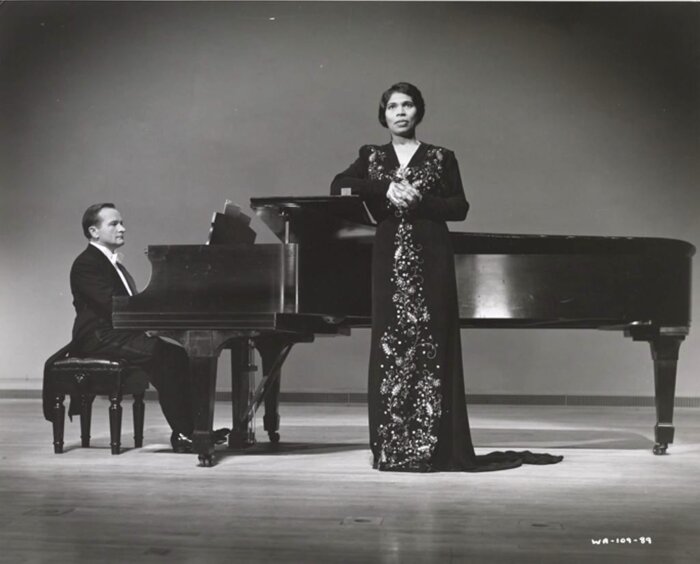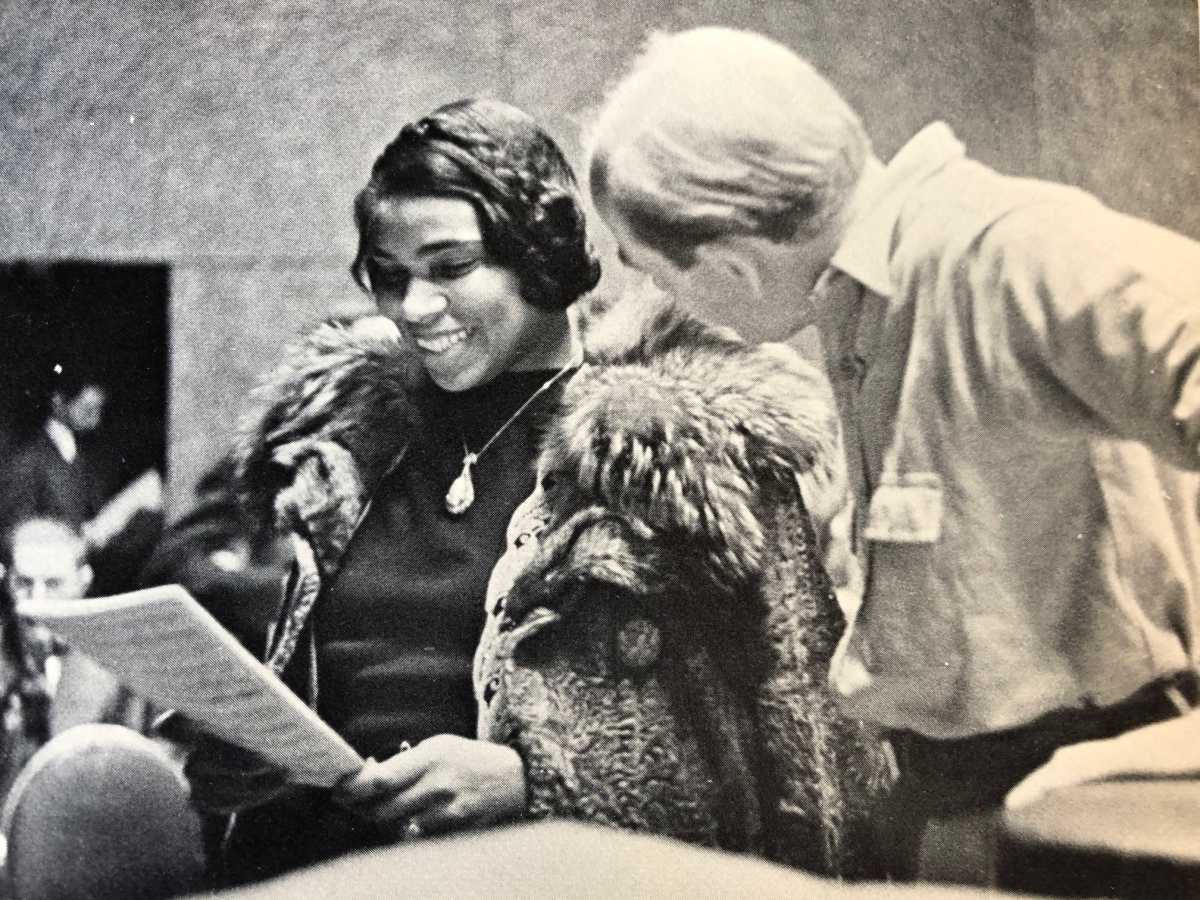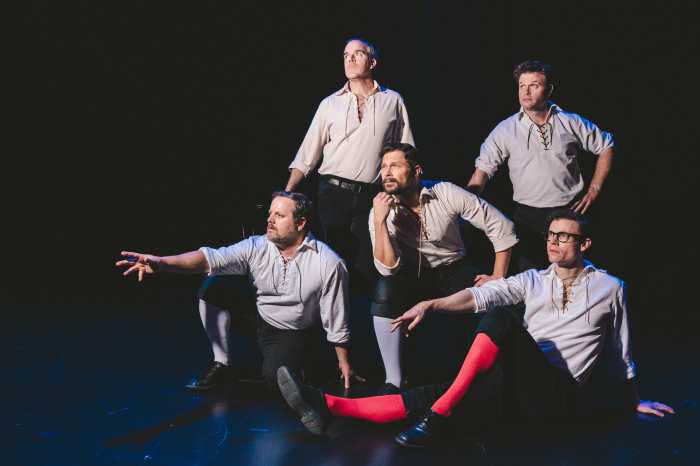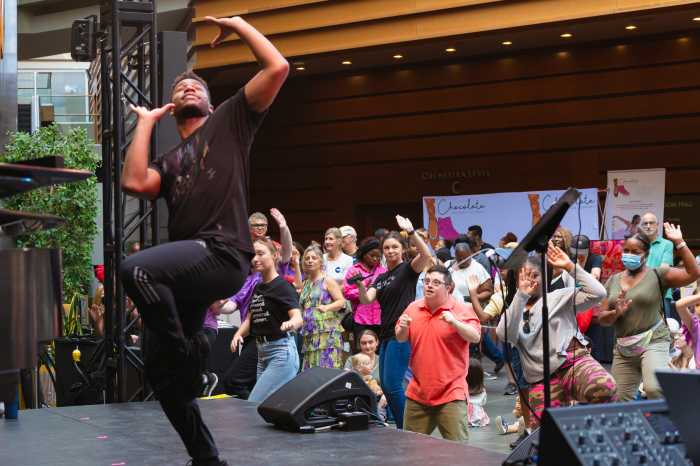The Kimmel Center’s Verizon Hall will be renamed in honor of legendary vocalist Marian Anderson, a classical and spiritual music vocalist known for crossing racial and artistic boundaries.
It’s an effort that Philadelphia Orchestra President-CEO Matías Tarnopolsky and Music and Artistic Director Yannick Nézet-Séguin did not take lightly.
“For many years, our organization has thought about what representation means within orchestral music and beyond,” said Tarnopolsky of the inspiration of art and its dedication to enrichment. “Put simply, if you can’t see it, you can’t be it. If Black kids don’t see themselves represented on the stage, they can’t imagine being there themselves.”
Nézet-Séguin continued the discussion toward a need for equity and in praise of Anderson — the first Black singer to perform at NYC’s Metropolitan Opera and connect to the Philadelphia Orchestra 13 times between 1937 and 1965.
“She broke many barriers, paved the way for future generations of artists, and her legacy is inscribed in the modern history of civil rights in America, and in musical history—from the prejudiced rejection of her artistry to the knowledge that she was one of the greatest voices of the 20th century.”

One step toward the representation Tarnopolsky spoke of came with Nézet-Séguin’s early programming of Black composers such as Florence Price, Marylou Williams and others into the Philadelphia Orchestra’s repertoire. Still, more needed to be done. With Verizon’s naming rights set to expire for the hall, Tarnopolsky and Nézet- Séguin looked toward a bold opportunity.
“We rely on philanthropy for our music, education and community programs,” said Tarnopolsky of finding generous donors (who choose to be unnamed) dedicated to “a powerful gesture around diversity, equity and access to inclusion.”
With that, Marion Anderson Hall was born.
“Anderson was an exceptional artist and a model of civic engagement through art,” said Nézet-Séguin. “It is important to me that everyone feel that music is for them, and that is such an important part of Marian Anderson’s legacy. It will be especially meaningful to lead The Philadelphia Orchestra on the stage of Marian Anderson Hall. Every time we set foot on that stage, every time we perform, and every time we look into the audience and see new faces, we will be reminded of her and the more inclusive future she helped to create. This is a celebration of Marian Anderson and a reminder that our music and our hall are for everyone.”
A hall renaming ceremony will take place on Wednesday, Feb. 28, where J’Nai Bridges, a Marian Anderson Award winner, and pianist Michelle Cann will perform Brahms’s ‘Die Mainacht’, and Florence Price’s ‘My Soul’s Been Anchored in the Lord’ – the song Anderson made famous during her historic Lincoln Memorial concert in 1939.

“This was the only piece arranged or composed by a woman on that program, and Marian Anderson made sure this was made clear by including Florence Price’s first and last names in the program,” said Nézet-Séguin in tribute to both Black women artists.
Denyce Graves, a Black mezzo-soprano vocalist beloved by Philadelphia audiences, will be on the dais during the renaming ceremony and couldn’t be prouder.
“Notwithstanding to me, the critical issue is the bright light of justice this honor shines — through the visionary leadership of The Philadelphia Orchestra and Kimmel Center,” said Graves. “So many people can be uplifted by this news, so many people need to be healed by this news, so many people need to be invited and welcomed in a place called Marian Anderson Hall where they find arts programming and artists who confirm their dignity and offer works of art reflecting their interests and lives.”
Graves thinks of Anderson in the present, and not just the past, when it comes to her influence as a woman of historical significance, strength and creative brilliance.
“That’s a mirror into which I often look to see what reflection of Denyce I see there,” said Graves. “I can be encouraged, corrected, excited and confirmed from simply looking at video and still images of Ms. Anderson. Continuing to learn about her, participating in this important event, let me know that the work of an artist never ends, certainly not hers. She, Ms. Anderson, is still sharing her gifts and I’m grateful beyond words, still, to be a recipient of her beneficence.”




























